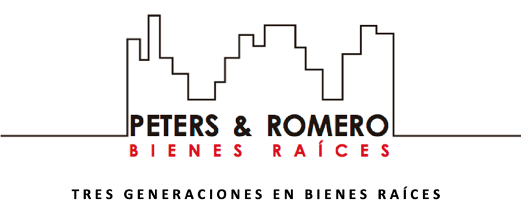Signing the Deed - Notarios, Documents and Taxes
The notary public plays a vital role in property transactions in Mexico, and becomes involved in the process after the buyer and seller enter into a promise to sell (Contrato de promesa de compraventa). A notary public is a lawyer appointed by state governments and required by law to prepare the deed (escritura) at the core of the transaction. They are legally bound to undertake due diligence with respect to ensuring that all documents are valid, and that all aspects of the transaction conform to the law. They collect and report any taxes or fees relating to the transaction, and register the purchase with the Public Registry of Property. Notaries are required to keep original records. The signing of the deed to transfer property must be done in the presence of a notary public.
The notary fees are payable by the purchaser, and are based on sale price according to a scale set by the Bar of Notaries.
*Find more information about the role of the notary.
Necessary documents must be collected by the buyer and seller and provided to the notary, who ensures that they are valid and up to date; others are obtained by the notary. This may take several weeks to complete. The following documents are generally required, and others may be requested depending on the circumstances:
*IDs of all parties, including any powers of attorney if necessary
*An official land appraisal (avalúo), which is often arranged by the notary, and may be paid in advance by the notary, with the cost added to the notary fees
*A certified deed (escritura) of the property, provide by the seller. The notary prepares a new document establishing and certifying the details of the property and checks with the Property Registry that the property has no liens (Libertad de gravámenes)
*Property Blueprints. Whenever an owner does not have them they need to get them done at their cost and provide them to the buyer before the sale can be completed
*Property tax receipts for the previous five years
*Proof of cancelation of any mortgages
*Certificates (constancia de no adeudo) confirming that all outstanding bills for services, including water, electricity, and maintenance have been paid
*Financial details of the bank to which deposits should be made
*Convenio (permit to purchase, for foreigners only)
*Details of the fideicomiso (for foreigners buying restricted properties only)
Once the documents have been prepared (typically within two to three weeks, but this can take much longer in some circumstances, especially when financing is needed) the parties, which may include the bank if a mortgage is used, and the trustee if required, will convene and sign the deed in the presence of the notary in order to transfer ownership of the property. At this time, the balance owing is transferred to the seller; the notary fees, and any taxes owing are also paid at this time.
Taxes and Fees
Some of the common fees and taxes associated with buying and selling property can be found below. Note that these may vary depending on location:
Paid by the buyer:
*Public notary fee – this is based on tariffs established by the Bar of Notaries, and is usually 1.5 to 2 percent of the sale price. Any upfront fees that the notary paid on behalf of the seller, such as the avalúo or registration fees, are added to this fee
*Registry of property fee – generally 1 to 1.5 percent of the selling price, paid directly by the notary and then added to the notary’s fees
*Property acquisition tax – based on a percentage of the selling price, generally 2 percent. Usually, the notary obtains the funds from the buyer and reports the transaction to the local treasury. There are some government programs that offer exemptions from this tax (like the so called Jornada Notarial), so buyers should consult their agent or notary to see if they qualify. The notary public calculates this amount.
*Sales tax – on commercial property only
*Fees associated with establishing a fideicomiso – varies by bank, but can be substantial; note that there is an annual charge to maintain the fideicomiso
*The convenio fee
*Lawyers' fees – for consultation or advice about the transaction, and for establishing a trust if necessary, can be substantial
*Registration of the fideicomiso – if required, can be substantial
Paid by the seller:
*Agent's fee – this is a percentage of the selling price, usually 5 percent, plus sales tax on the agent's fee
*Capital gains tax – assessed on the sale price of the property minus the original purchase price, with some allowances for investments/improvements of the property and Real Estate agent´s fees; this amount is paid with the annual income tax of the seller
*If a foreigner pays taxes in Mexico some tax exemptions may apply and therefore it is important to talk about this option with the notary public
*Foreign capital gains tax – some foreign governments levy a capital gains tax on their nationals living in Mexico
The process of buying, selling or renting any type of property or land is regulated at a state level in Mexico. While some procedures in the property purchase process may be identical in all states, others may differ. This page gives an overview of what is involved in buying a property in Mexico, prepared by certified real estate agents who are experts in the Mexico City property market. It contains advice that should not be considered a legal document nor should it imply any liability for its authors in case there are some discrepancies with the processes involved for the sale or rental of a property. It should also be noted that for particular practices and requirements in areas other than Mexico City, advice should be sought from professionals familiar with the property market in that state.
Information provided by Carmella Peters-Romero, Vanessa Kerr and Hector Romero of Peters & Romero Bienes Raíces, Tel: 55 3713 0985 / 55 6708 4772 / 55 4341 3131



